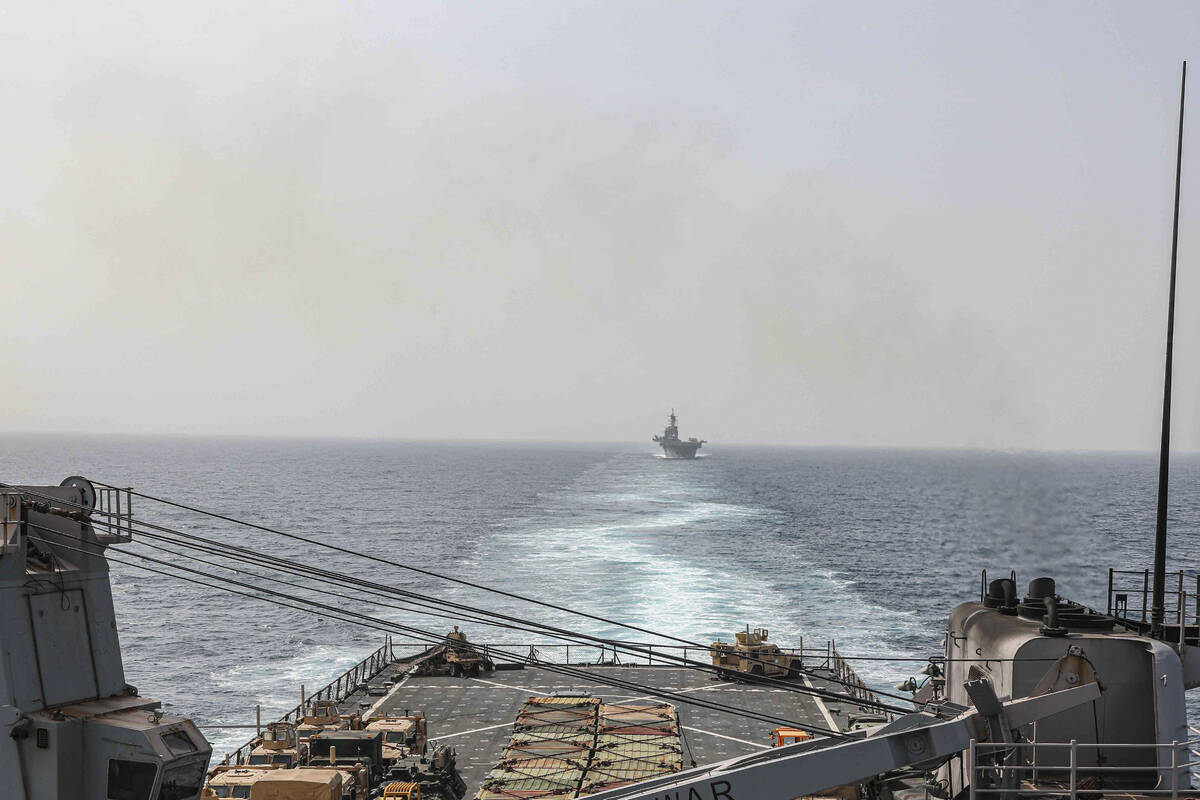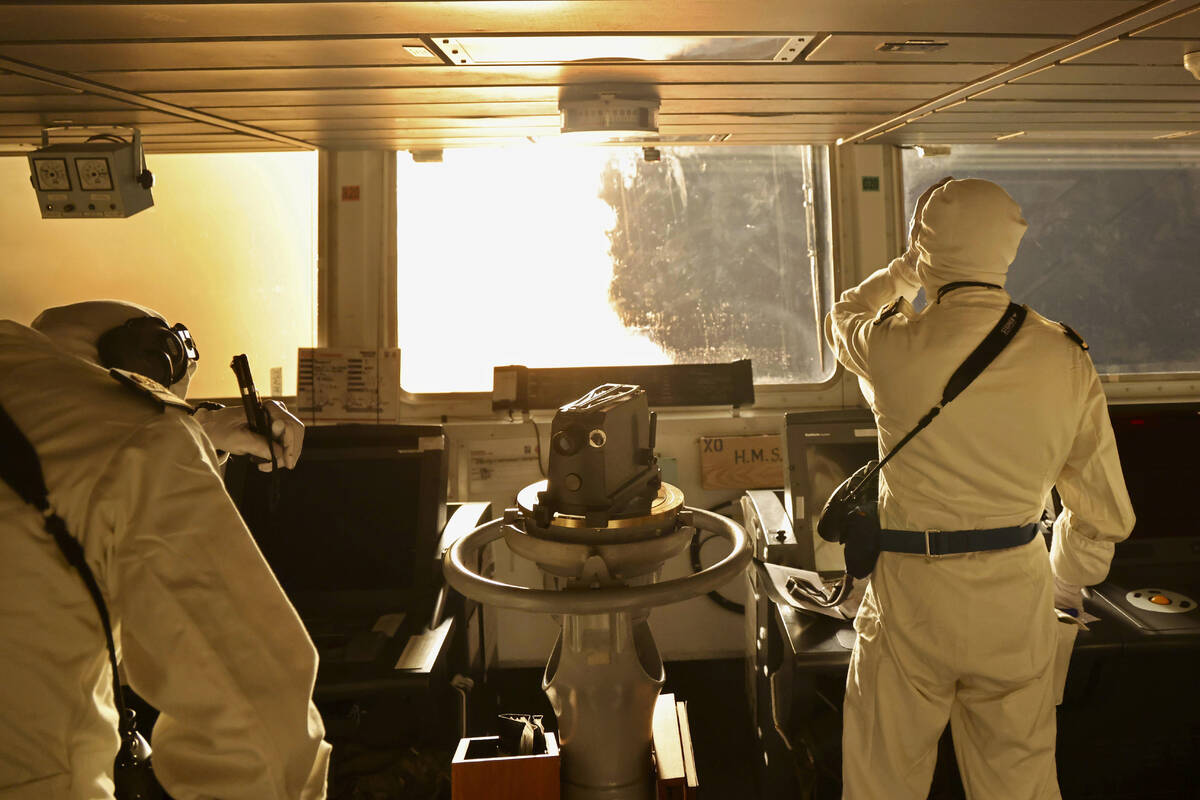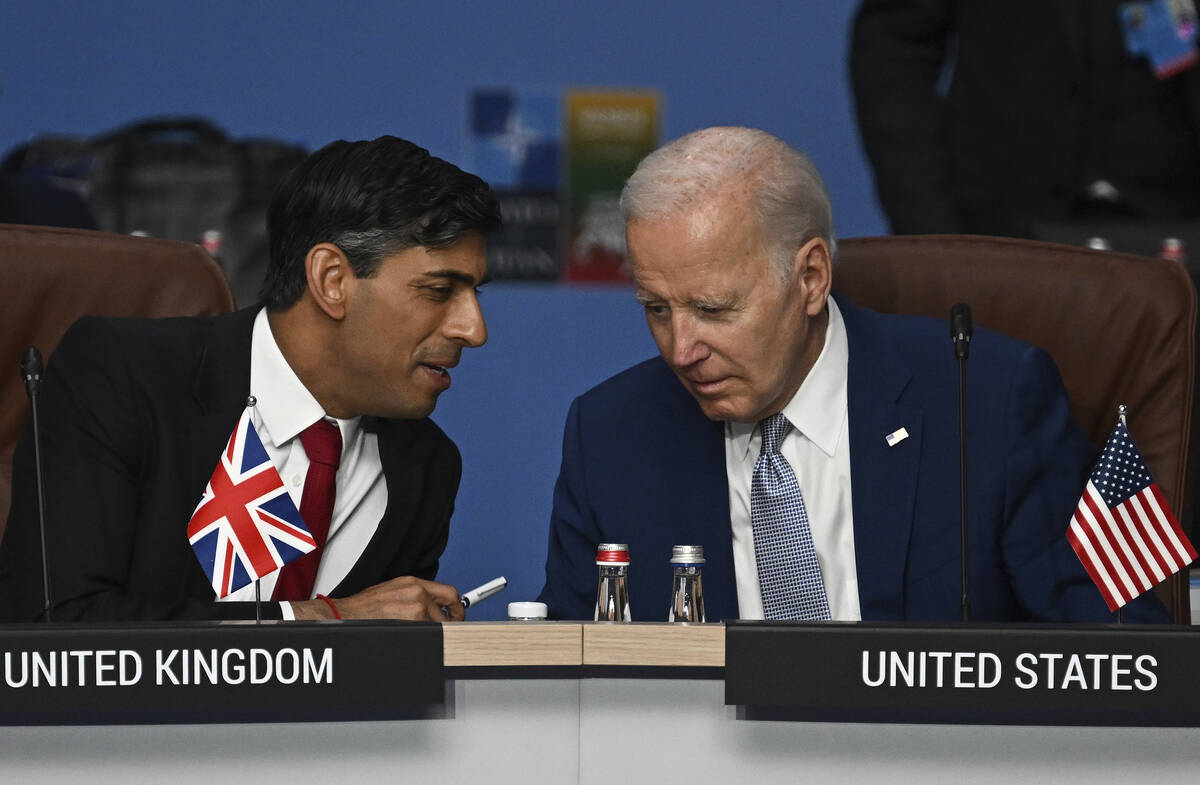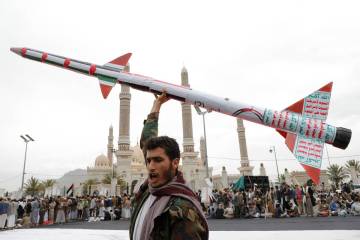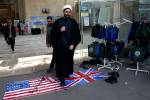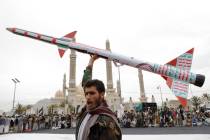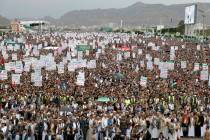U.S., British militaries launch retaliatory strike against Houthis in Yemen
WASHINGTON — The U.S. and British militaries bombed more than a dozen sites used by the Iranian-backed Houthis in Yemen on Thursday, in a massive retaliatory strike using warship and submarine-launched Tomahawk missiles and fighter jets, U.S. officials said.
The military targets included logistical hubs, air defense systems and weapons storage and launching locations, they said.
President Joe Biden said the strikes were meant to demonstrate that the U.S. and its allies “will not tolerate” the terrorist group’s ceaseless attacks on the Red Sea. And he said the U.S. and its allies only made the move after attempts at diplomatic negotiations and careful deliberation.
“These strikes are in direct response to unprecedented Houthi attacks against international maritime vessels in the Red Sea — including the use of anti-ship ballistic missiles for the first time in history,” Biden said in a statement. “These attacks have endangered U.S. personnel, civilian mariners, and our partners, jeopardized trade, and threatened freedom of navigation.”
The strikes marked the first U.S. military response to what has been a persistent campaign of drone and missile attacks on commercial ships since the start of the Israel-Hamas war, which was triggered by the Oct. 7 Hamas terrorist attack on southern Israel that killed around 1,200 people and saw some 250 others taken hostage.
And the coordinated military assault comes just a week after the White House and a host of partner nations issued a final warning to the Houthis to cease the attacks or face potential military action.
The officials confirmed the strikes on condition of anonymity to discuss military operations. Members of Congress were briefed earlier Thursday on the strike plans.
The warning appeared to have had at least some short-lived impact, as attacks stopped for several days.
On Tuesday, however, the Houthi rebels fired their largest-ever barrage of drones and missiles targeting shipping in the Red Sea, with U.S. and British ships and American fighter jets responding by shooting down 18 drones, two cruise missiles and an anti-ship missile. And on Thursday, the Houthis fired an anti-ship ballistic missile into the Gulf of Aden, which was seen by a commercial ship but did not hit the ship.
International coalition acts
In a separate statement, U.K. Prime Minister Rishi Sunak said the Royal Air Force carried out targeted strikes against military facilities used by the Houthis.
Noting the terrorists have carried out a series of dangerous attacks on shipping, he added, “This cannot stand. He said the U.K. took “limited, necessary and proportionate action in self-defense, alongside the United States with non-operational support from the Netherlands, Canada and Bahrain against targets tied to these attacks, to degrade Houthi military capabilities and protect global shipping.”
The rebels, who have carried out 27 attacks involving dozens of drones and missiles just since Nov. 19, said Thursday that any attack by American forces on its sites in Yemen will spark a fierce military response.
“The response to any American attack will not only be at the level of the operation that was recently carried out with more than 24 drones and several missiles,” said Abdel Malek al-Houthi, the group’s supreme leader, during an hour-long speech. “It will be greater than that.”
The Houthis say their assaults are aimed at stopping Israel’s war on Hamas in the Gaza Strip. But their targets increasingly have little or no connection to Israel and imperil a crucial trade route linking Asia and the Middle East with Europe.
Meanwhile, the U.N. Security Council passed a resolution Wednesday that demanded the Houthis immediately cease the attacks and implicitly condemned their weapons supplier, Iran.
It was approved by a vote of 11-0 with four abstentions — by Russia, China, Algeria and Mozambique.
Britain’s participation in the strikes underscored the Biden administration’s effort to use a broad international coalition to battle the Houthis, rather than appear to be going it alone. More than 20 nations are already participating in a U.S.-led maritime mission to increase ship protection in the Red Sea.
Patience runs out
U.S. officials for weeks had declined to signal when international patience would run out and they would strike back at the Houthis, even as multiple commercial vessels were struck by missiles and drones, prompting companies to look at rerouting their ships.
On Wednesday, however, U.S. officials again warned of consequences.
“I’m not going to telegraph or preview anything that might happen,” Secretary of State Antony Blinken told reporters during a stop in Bahrain. He said the U.S. has made clear “that if this continues as it did yesterday, there will be consequences. And I’m going to leave it at that.”
The impact on international shipping and the escalating attacks triggered the coalition warning, which was signed by the United States, Australia, Bahrain, Belgium, Canada, Denmark, Germany, Italy, Japan, Netherlands, New Zealand, Singapore and the United Kingdom.
Separately, the U.S. called on the United Nations Security Council to take action against the Houthis and warned their financier Iran that it has a choice to make about continuing to provide support to the rebels.
Transit through the Red Sea, from the Suez Canal to the Bab el-Mandeb Strait, is a crucial shipping lane for global commerce. About 12 percent of the world’s trade typically passes through the waterway that separates Africa and the Arabian Peninsula, including oil, natural gas, grain and everything from toys to electronics.
In response to the attacks, the U.S. created a new maritime security mission, dubbed Operation Prosperity Guardian, to increase security in the Red Sea, Bab el-Mandeb Strait and the Gulf of Aden, with about 22 countries are participating.
U.S. warships, and those from other nations, have been routinely sailing back and forth through the narrow strait to provide protection for ships and to deter attacks. The coalition has also ramped up airborne surveillance.
The decision to set up the expanded patrol operation came after three commercial vessels were struck by missiles fired by Houthis in Yemen on Dec. 3.
The Pentagon increased its military presence in the region after the Oct. 7 Hamas terrorist attack in Israel to deter Iran from widening the war into a regional conflict, including by the Houthis and Iran-backed militias in Iraq and Syria.
————
Associated Press writers Ahmed al-Haj in Sanaa, Yemen, and Jack Jeffery in London contributed to this report.



